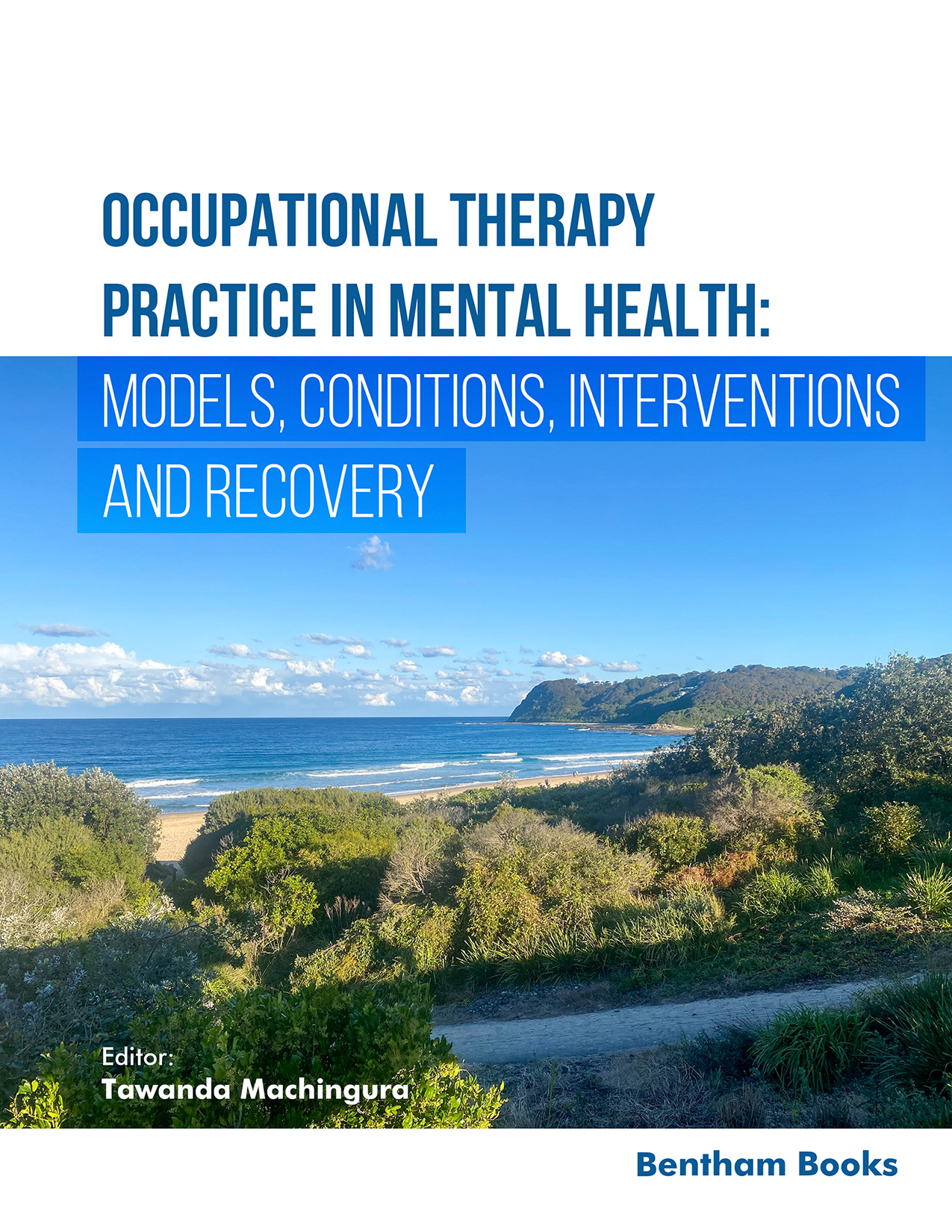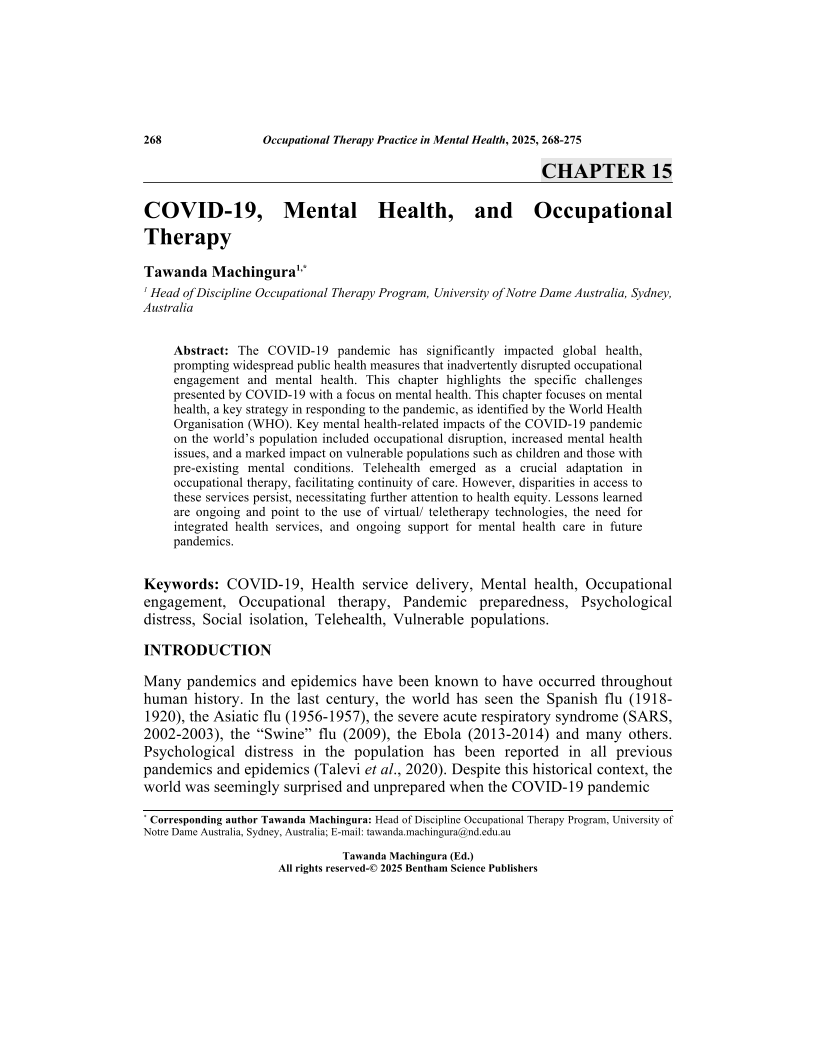COVID-19, Mental Health, and Occupational Therapy

- By Tawanda Machingura1
-
View Affiliations Hide Affiliations1 Head of Discipline Occupational Therapy Program, University of Notre Dame Australia, Sydney, Australia
- Source: Occupational Therapy Practice in Mental Health: Models, Conditions, Interventions, and Recovery , pp 268-275
- Publication Date: October 2025
- Language: English
COVID-19, Mental Health, and Occupational Therapy, Page 1 of 1
< Previous page | Next page > /docserver/preview/fulltext/9789815313710/chapter-15-1.gif
The COVID-19 pandemic has significantly impacted global health, prompting widespread public health measures that inadvertently disrupted occupational engagement and mental health. This chapter highlights the specific challenges presented by COVID-19 with a focus on mental health. This chapter focuses on mental health, a key strategy in responding to the pandemic, as identified by the World Health Organisation (WHO). Key mental health-related impacts of the COVID-19 pandemic on the world's population included occupational disruption, increased mental health issues, and a marked impact on vulnerable populations such as children and those with pre-existing mental conditions. Telehealth emerged as a crucial adaptation in occupational therapy, facilitating continuity of care. However, disparities in access to these services persist, necessitating further attention to health equity. Lessons learned are ongoing and point to the use of virtual/ teletherapy technologies, the need for integrated health services, and ongoing support for mental health care in future pandemics.
-
From This Site
/content/books/9789815313710.chapter-15dcterms_subject,pub_keyword-contentType:Journal -contentType:Figure -contentType:Table -contentType:SupplementaryData105

